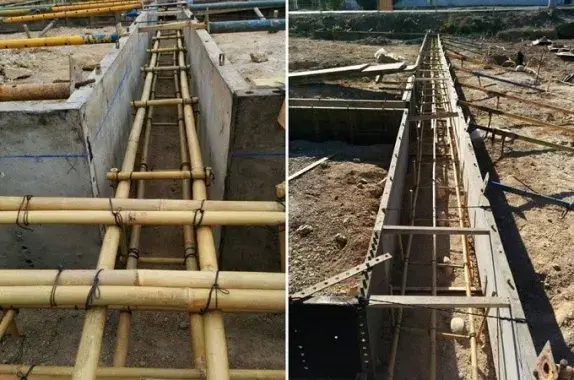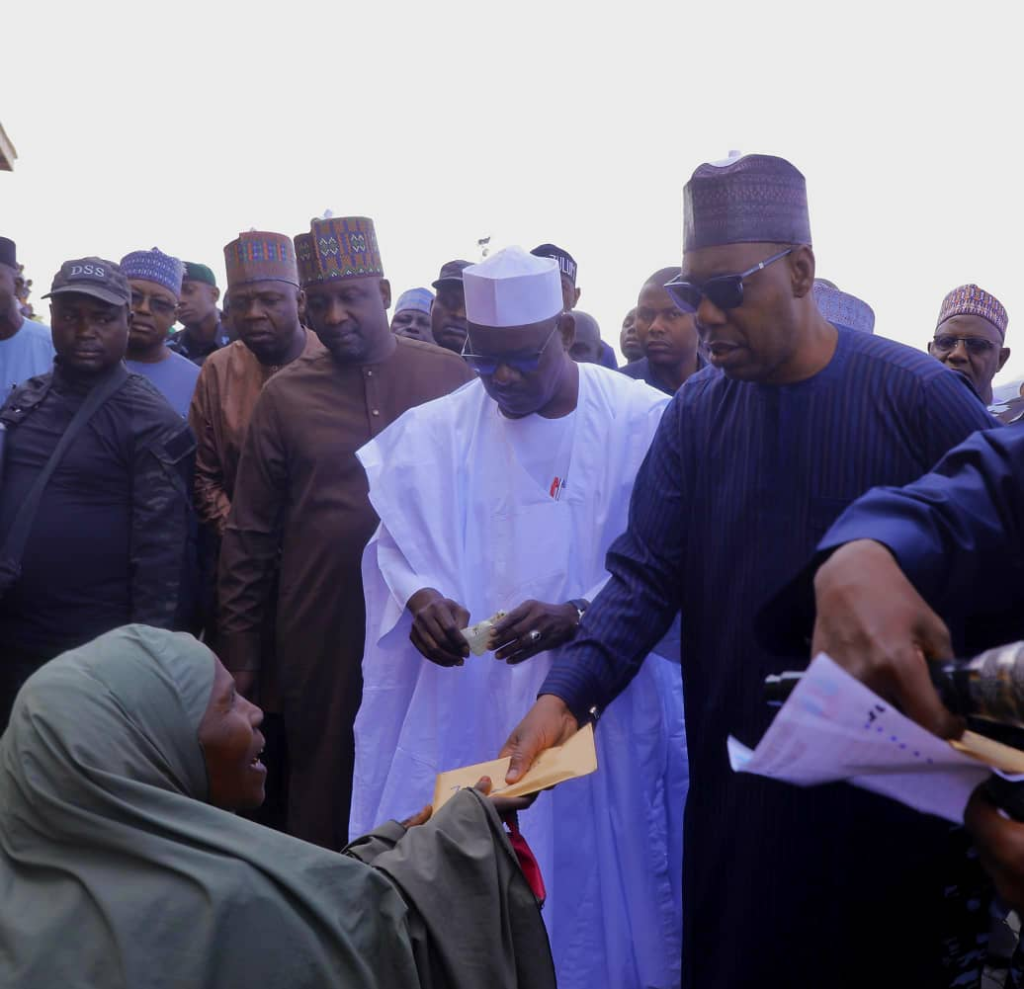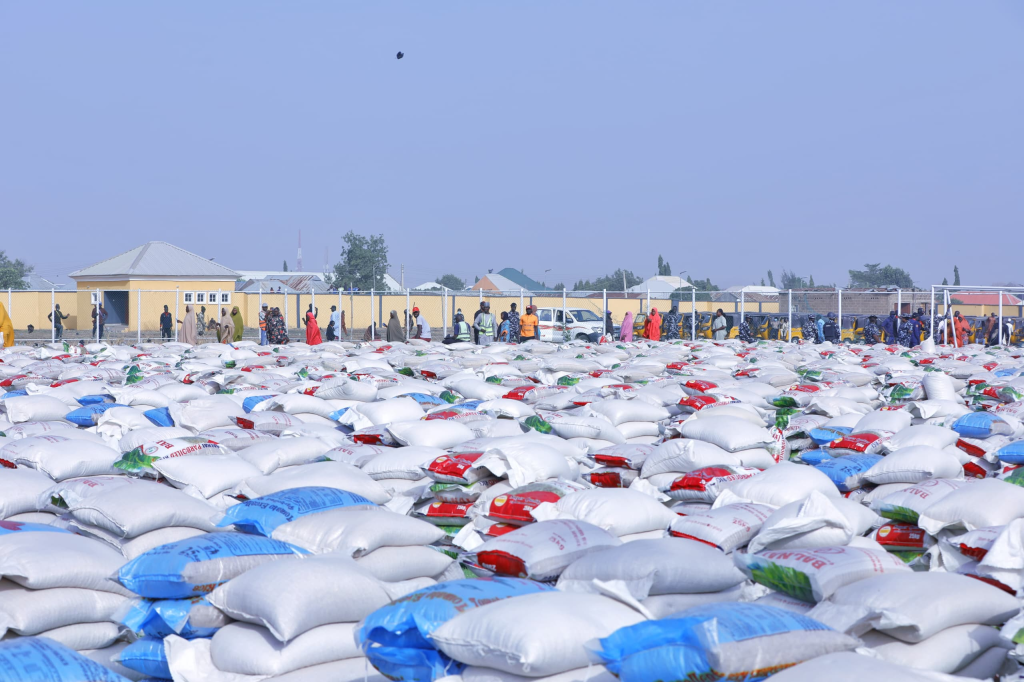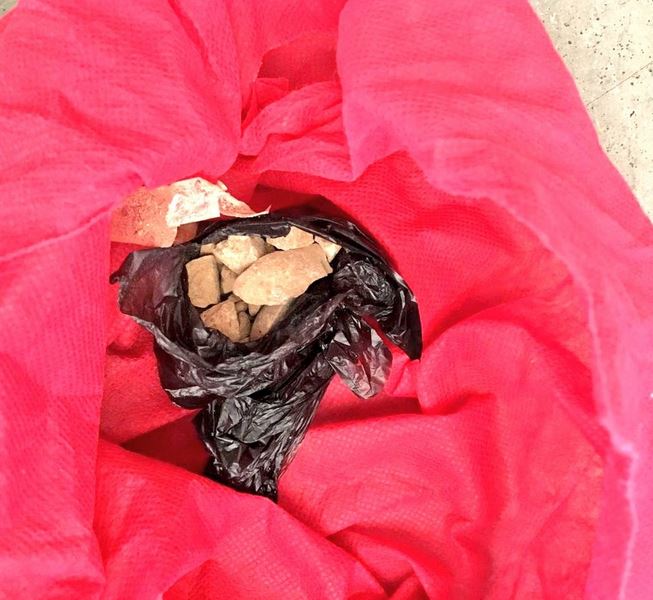AFOLABI
Three Nigerian Nationals And One Kenyan Arrested In Drug Trafficking Crackdown In Nairobi
Four suspects including three Nigerian men, Igboke Okwuchukwu Stephen, Ilo Ebuka Titus and Kanu Arinze, were arrested on Saturday night, March 16, 2024, in a crackdown on drug traffickers and peddlers in Nairobi, Kenya.
The crackdown is being conducted by a joint operation spearheaded by Anti-Narcotics and Transnational Organized Crimes detectives.
The first suspect, Igboke Okwuchukwu Stephen was found with several pellets of brown powdery substance concealed in his house at Nasra Estate, Nairobi. He was booked at Muthaiga Police Station.
In a stop-and-search operation in Ruaka, Kiambu County, 25-year-old Njuguna Karumo was arrested after a similar substance were found hidden under the mats of his motorbike. He was taken to DCI’s Mazingira Complex for questioning.
In Nyamakima, Nairobi CBD, an intelligence-led operation led to the arrest of Ilo Ebuka Titus and Kanu Arinze who were cornered and escorted to their residence at Sunton, Kasarani.
On searching the house, suspected bhang and a package of brown powdery substance were found and seized.
“Kanu and Ebuka were also taken to Muthaiga P/Station pending testing of the drugs and possible prosecution for use and peddling,” the DCI says.
The DCI says that the operation, which extends to all counties, is aimed at fighting the vice from the grassroot, with the police firmly enforcing anti-narcotic laws.
APC picks Idahosa as Edo 2024 deputy gov candidate

The All Progressives Congress (APC) has selected Hon. Dennis Idahosa as its deputy governorship candidate in the September 21 Edo governorship election.
Idahosa will serve as a running mate for the APC candidate in the state, Senator Monday Okpebholo.
Recall that Idahosa was one of the aspirants who vied for the APC ticket for the Edo governorship election during the party primaries but lost to Okpebholo, who eventually emerged as the party’s flag bearer for the November 21, 2024 election.
At a meeting on Sunday night, Idahosa was unveiled in the presence of the APC National Chairman, Abdullahi Ganduje, former Edo State Governor, Adams Oshiomhole, Okpebholo himself, and several other party chieftains.
Ganduje, along with the party’s National Secretary, Sen. Ajibola Bashiru, is scheduled to present Okpebholo and Idahosa to President Bola Ahmed Tinubu at the villa today.
Idahosa is slated to take the place of Hon. Omoregie Ogbeide-Ihama, who was named by the governorship candidate last week as his running mate.
High cost of iron rods: Engineers now build with bamboo

That Nigeria’s economy is in bad shape, is no longer news. Food and other necessities are hard to come by.
However, no matter what turn the economy takes, Nigerians, by their unique nature, will always find survival alternatives.
That is why although it sounds unthinkable to see, anywhere in the world, where bamboos are used in place of irons to cast pillars and decking of building constructions, Nigeria has found in convenient.
The high cost of building materials is making many homeowners go for cheap alternatives for construction.
While many Nigerians whose buildings are under construction are abandoning them, waiting for when prices of materials will go down, most frustrated ones are selling off their uncompleted properties to interested buyers.
But others have decided to invent conventional means by replacing iron rods with bamboo.
Economy&Lifestyle discovered that home construction engineers now use bamboo, laced with construction wires to cast decking and pillars of buildings.
Usually, for such buildings, Iron rods are used in these areas to create rigidity and firmness.
Bamboo, a woody plant with hollow stems is in the grass family. It is always used for scaffolding in tall buildings replacing steel irons merged together with screws.
According to Mr. Andrew Asaga, a building engineer, 12mm, 16mm, 20mm, 25mm, 10mm, or 8mm iron rods are recommended for building apartments depending on the strength of the material and the designs specified.
He added: “Bamboo can also do the job of an iron rods to an extent.
“Some persons now use only bamboo for the pillars.
“Some mix bamboo with iron rods for the decking to save cost.
“Others now use only bamboo for decking.
“An iron rod costs between N10,000 to N30,000 depending on the size.
“This was twice the price it was sold for last year.
Few weeks ago, a client who wanted to build a bungalow asked that I use bamboo mixed with iron rods to build the pillars because the cost of iron rods has increased.
“He wanted me to construct 8 pillars for the building and would need four 12 mm iron rods for a pillar.
“A ton of 12mm (93 pieces) is now over N1.3 million .
“I don’t know where this country is heading to.”
Mr. Atanaza Godbless, an engineer said: ” Building developers are no longer making profits in the business.
” This is because the cost of building materials are increasing daily.
“When you make a quotation for clients today and they respond next week, you get to the market and discover that the prices of the materials you quoted have increased tremendously.
“You are left with nothing to settle with your workers.
“At the end you see engineers running away leaving workers unpaid.
“And such a person is being labelled bad.
“People are now settling for less alternatives of building materials.
“The cost of iron rods for instance, is making people use bamboo.
“The government is seeing all these and nothing is being done to reduce the cost of building materials.
“The result of these alternatives is having inferior buildings and increased building collapse.”
The strong bonds between concrete and the iron rods ensure stronger constructions as external forces cannot easily break these bonds and the concrete will not slip away from these rods as they are tied together during construction.
Mrs. Fatimetu Momoh, a bamboo seller said the price of a piece of bamboo has also increased from N400 per bamboo to N1500.
She added: “Even used ones now go for N900 which was sold for N200.
“Those supplying the bamboo are complaining of logistics and levies paid on the road.
“This is not something we import. Or do we start importing bamboo? Something we have in our country.
“There is no business that is not frustrated in today’s economy. I pray God will save us from this horrible situation.”
Hardship: Nigeria going through inevitable pains – Soludo
Governor Chukwuma Soludo of Anambra State believes Nigeria’s biting economic situation is an “inevitable” phase for the betterment of the nation.
Soludo stated this in an interview on Channels Television’s Sunday Politics.
Recall that Nigeria’s inflation level rose to 31.70 per cent in February with the cost of living shooting up in the wake of the fuel subsidy removal and the floating of the naira.
Reacting to the development, Soludo said this is a phase needed before the country begins to flourish.
He said, “You see, sometimes, I kind of feel we don’t get it.”
On the nation’s economy, Soludo likened the country’s situation to a patient undergoing treatment.
He said, “But whether there will be pains for any step you take or the other, it is going to be. It is inevitable. But that is obviously what we need to pass through,” he said, maintaining that President Bola Tinubu inherited a bad economy upon assumption of office in May 2023.
“We must realise that things were really bad. We must get it clear that there is no easy way to get this patient who has multiple problems [to become better],” Soludo added.
Soludo, who is marking his second year in office, also spoke about his achievements since 2022, adding that his government has created jobs for the masses.
”In the first nine months of coming into office, we have employed over 5,000 teachers and processing 2,000 more,” the former Central Bank of Nigeria (CBN) governor said.
“We have employed over 1,000 health workers and in the area of security, we have over 2,000 employed.”
Earlier in the day, Soludo told a congregation during a thanksgiving service to celebrate his two years in office that he is not drawing salaries from the Anambra government. This, he said, is part of austerity measures.
“As I speak to you, I am not taking any salary, I am not paid any salary by Anambra State government. Even the First Lady of Anambra doesn’t have any official car, she still drives my personal vehicles,” he said.
Politicians today work for personal interest not Nigeria — Christopher Kolade
A former Nigerian High Commissioner to the United Kingdom, Christopher Kolade Nigerian politicians of today only work for their personal interest above national interest.
Kolade stated this in an interview with Channels Television during the week.
The elder statesman said he never joined politics because he “would not be able to be myself.”
According to him, things have changed compared to the politicians of the first republic — from 1963 to 1966 — who “actually were serving the country”, and were imprisoned because of their beliefs.
He said, “My view of politics is that the practice of politics can be very sensitive and one can begin to do things, begin to participate in decisions that conflict with the values, the standards, the principles that one believes. That has been my experience.
“I’ve never gone into politics because the way it was being practised, I thought I would not be able to be myself if I became a politician now.
“That may be simply my own weakness but this is the situation and so when I see politicians today and the way they behave, if I compare today’s politicians with politicians of the First Republic, for example.
“I can tell that my experience of the politicians of the First Republic was that they actually worked for Nigeria; they actually were serving the country;
“…they put themselves and their own interests lower than the national interests and some of them in order to serve the country well were actually imprisoned, they suffered hardships in order to get the country to where they thought it should go.
“I think that has changed. I believe that today many politicians, in fact most politicians that I know of, tend to put their own interests ahead of the national interest,” he said.
Recall that Kolade was appointed by the Goodluck Jonathan administration in 2012 to chair the Subsidy Re-investment and Empowerment Programme (SURE-P).
But, Kolade said his friends advised him against accepting the role to safeguard his reputation.
He said despite the advice to decline the offer, he went on to accept the job because “somebody must do it.”
Kolade said, “In fact, there was a group of young people that I was mentoring at the time and they said to me in a meeting: ‘We respect you too much, don’t go for this.
“I asked for God’s direction, I asked them a question: ‘I said so if I don’t take it, if I say because I want to protect my reputation I don’t take it, whom shall I point to and say you take it, you go and endanger your reputation, you go and do this?’ I said so I cannot refuse to take it because I know somebody must do it.
“What I can do is to say if I go and do it, God is able to see me through it. That was what happened.
“So, friends can tell me their preference and sometimes I even have my own preference but I remember always that I’m God’s child and that he has my best interests at heart.”
Kolade resigned his appointment in 2013 as a result of age, corruption and transparency-related issues.
Hardship: Gov Zulum shares food aid to 52,000 families, N100m to 2,000 youth, farmers [PHOTOS]

Governor Babagana Umara Zulum of Borno State supervised the distribution of food aid to over 52,000 families in seven local government areas of Southern Borno to alleviate the hardship caused by inflation and the current economic problems bedeviling the country.
The distribution took place on Sunday at the Biu township stadium.
The benefiting local governments include Biu, Shani, Chibok, Askira-Uba, Kwaya Kusar, Bayo and Hawul.
This is as Senator representing Southern Borno, Mohammed Ali Ndume also urged people in the constituency not to sell the food and non -food items donated to them by Governor Zulum, but to use it in cushioning the current economic hardships.
The governor said, “This morning, we are in Biu to provide palliatives to 52,000 vulnerable families in southern Borno. This is in continuation of our efforts to provide food and non-food items to the less privileged in society.
“We have not consistently given food items to people in southern Borno because they are not deeply affected by the insurgency. However, due to the current hike in food prices, the government has decided to come in and support the people with food aid”, the governor added.

“Each beneficiary will collect 25kg bag of rice and 25kg bag of maize,” Governor Zulum stated.
In Biu local government area, 17,000 families each got a bag of rice and a bag of maize grain. 5,000 families benefited from Shani, Bayo, Kwaya Kusar, Chibok and Hawul local government areas, while in Askira-Uba, 10,000 bags of rice and maize were given to Uba and Askira- Emirates.
Distributes N100m to 2,000 youth, women farmers
Meanwhile, Governor Babagana Umara Zulum distributed over N100m to 2,000 youth and women to support them in cultivating their farmlands

Zulum said, “In addition to the food distribution, we are giving out N100m grant to 2,000 beneficiaries, each receiving N50,000. This grant is for them to use in cultivating their farmlands.
“We hope the money will help them in their farming activities”, he stated.
Speaking at the ceremony, Deputy Governor of Borno, Umar Usman Kadafur, who hails from Biu, urged beneficiaries to make good use of the food gesture and grant provided by the governor.
Dont sell palliatives given to you by government – Ndume urges constituents
Senator representing Southern Borno, Mohammed Ali Ndume has urged people in his constituency not to sale food and non -food items donated to them by Governor Babagana Zulum, but to use it in cushioning the current economic hardships.
Ndume who is the Chief Whip at the national assembly commended President Bola Ahmed Tinubu for given approval of palliatives worth N200 million to each Senator for onward distribution to people in their respective communities.
He noted he has since embarked on distribution of such palliatives to his constituents in order to complement good efforts of Borno State Government under the leadership of Governor Zulum.
His words, ” I want to use this opportunity to thank our Governor for considering the people of Southern Borno under this very difficult and expensive situation. This palliatives is coming at a right time because we are in person of Ramadan Kareem.
“At least, each of the 52,000 beneficiaries will go home with 25kg bags of rice and maize, while 2,000 youths including women were given N50,000 each as empowerment grants by the state government. This is highly commendable.

“Likewise, I thank President Bola Tinubu for supporting each Senator with grains and rice worth N200 million. As you can see Borno has taken the lead in distribution of palliatives more than any state in the whole of the federation, and I want to urge our people to maintain law and order throughout the distribution exercise,” Ndume stated.
In a related development, Governor Zulum unveiled Water projects in Azare, the headquarters of Hawul local government area.
According to the Commissioner Ministry of Water Resources, Engr Tijjani Goni, the Water tank is about 965 liters which would be powered by solar borehole that will distribute water to Azare town and it’s environs
PH-Abuja rail line: FG speaks on MoU with UK firm without rail construction history
The Federal Government has reacted to the uproar and castigation that greeted the Memorandum of Understand, MoU, it signed with Messrs MPH Rail Development Limited, a United Kingdom, UK, firm.
The MoU which was signed by the Ministry of Transport on March 13, 2024, was for the building of the Port Harcourt–Enugu–Calabar–Abuja Standard Gauge Rail Line.
The announcement of the MoU, has sparked widespread controversy and condemnation by Nigerians on social media, especially X.
They expressed concern over the decision of the government to sign such MoU with a company without palpable rail construction history.
Responding to the controversy, Minister of Transportation, Sa’idu Ahmed Alkali, disclosed that the project was still at its preliminary stage.
In a statement issued on Sunday by Olujimi Oyetomi, Director, Press and Public Relations of the Ministry, the minister noted that the documents that were signed are not legally binding.
Parts of the statement read, “For clarity, a Memorandum of Understanding or MoU is a non-binding agreement that states each party’s intentions to take actions, conduct a business transaction or form a new relationship.
“It is not a legal binding agreement.
“It provides only a platform for further agreement, discussion, scrutiny and the provisions of required guarantees by the parties to reach agreement if the parties are satisfied.
“The MoU in question arose from an unsolicited proposal presented by the British African Business Alliance, BABA, an association based in the United Kingdom with interest in businesses in Africa. It’s proposal was initially submitted to the ministry on 27th August 2019.
“As required, the business, Outline Business Case was submitted to the Infrastructure Concession and Regulatory Commission, ICRC, on 8th December 2023. The major attraction of the proposal is BABA/MPH’s initiative to achieve 100% private sector funding for the project with no loans or debt to the Nigerian government or any of its agencies as captured in the Article 3.3 of the MoU.
“The regulatory Commission on 27 December 2023 granted approval and issued a conditional OBC Certification. It is pertinent to note at this juncture that COVID-19 was a major contributor to the time lag between the initial proposal and the ICRC OBC Certification
Senate warns against supplementary budget, excess loans
The Senate has warned the executive against increasing the budget size through a supplementary budget, advising the government to use the excess savings that are expected to be made from the recent depreciation of the naira to fund deficit.
This came against the backdrop of the depreciation of the local currency against the United States dollar from N900/$r to over 1,500/$, following a series of moves by the Central Bank of Nigeria to unify the parallel and official market exchange rates of the naira.
The National Assembly had in December moved the 2024 budget benchmark exchange rate from N750/dollar sent by President Bola Tinubu to N800/dollar.
Giving reasons at that time, the Chairman of the Senate Committee on Appropriation, Senator Solomon Adeola, explained, “The current price of the dollar at the black market is between N1200 and N1300 and in the Central Bank of Nigeria, it is between N950 and N1000 and we have a budget which was pegged at N750, if you look at the gap, you’d realise that has covered a lot of gaps already.”
“Again, we did some external consultations, most especially in the area of oil benchmark and petroleum resources, if we had gone in that line, we’d have pegged it at N850/N900 to a dollar and we agree that we want to be conservative in our approach, so that nobody will think that we want to increase the budget for any ulterior motive, that was why we left it at N490bn out of which N44bn is for statutory transfer, so effectively, the increment is about N446bn that is going into the Federal Government pocket as consolidated revenue.”
“So, you can see that what necessitated our action is the economic reality and what is obtainable in both the black and open markets.”
However, following the depreciation of the naira from N900/dollar to over N1,500/dollar, the Senate has advised the Federal Government against increasing the budget size, saying the move could worsen the country’s already high inflation rate.
Rather, the Senate said the executive should use the excess savings to cut down on loans it would seek to fund the deficit in the budget.
The Chairman of the Senate Committee on Banking, Insurance and other Financial Institutions, Tokunbo Abiru, in an exclusive interview with The PUNCH, advised the Federal government to avoid increasing the budget size.
He also advised that gains from the budget should be spent on reducing the budget deficit.
He said, “My position will be to advise that the Federal Government not to expand the size of the budget, rather use whatever gains that come to moderate inflation excess; and even the appetite for contracting loans for deficit should be moderated.”
He also explained that it was too early to determine the workability of the budget despite the volatility of the naira.
He explained, “What you use in budgeting is average rate not spot rate. What you are seeing today in the forex market is still looking like a spot rate.
“And you can see all attempts, all efforts from the end of Central Bank of Nigeria and the federal government is to find a way to stabilize. I can’t tell what the stabilized number would be.”
Abiru added, “So it will be too hasty to begin to judge from the current spot performance, not until when we have something close to our average or stable position. That’s when you should not be thinking about any revision of the budget.”
Also speaking in the same vein, the Deputy Chairman of the Senate Committee on Appropriation, Senator Ali Ndume, said the country would be saving over N600 on every dollar in the 2024 budget.
According to him, Nigeria earns over 60 per cent of its revenue in dollars and, as such, the fall of the naira against the dollar has created huge savings for the country.
Explaining he said, “We should be talking about budget excess not deficit. We spend naira, our budget is in Naira and we are spending in naira.
“The crude oil is our major source of income and it is being sold in dollars. So, if we are to analyze things, then we are making more money than losing money. The Federal Government pegged it first at N750 but at the National Assembly we jerked it up to N800.”
Ndume added, “So, we are selling our crude at about N1400 instead of N800, so we are making about N600 budget excesses. So, we have more money to spend.
“The budget is a dolarised budget so to say, such that our income is in dollars and expenditure is in naira. We are spending naira and earning dollars.”
On the increment in the prices of foodstuff, the lawmaker said that the hike in the prices was caused by Nigerians who were taking advantage of the volatility of the foreign exchange.
Ndume added, “The problem we have is in foreign exchange, but most of our foods are produced locally. So, the increment is on people who decide to take advantage of the foreign exchange.
“For instance, we don’t import corn, beans and other foodstuff, so why are the prices of foodstuff going up?”
Economists react
A professor of Economics at Babcock University, Ilisan, Ogun State, Segun Ajibola, said the rise in dollar would affect both the budget revenue and expenditure.
“You know budget is both sides – revenue and expenditure. The first thing we should realise is that if government earns dollar, the government will monetise that dollar at the exchange rate, then expenses will be incurred at that same exchange rate, so it will affect both the revenue and the expenditure,” Ajibola said.
He noted that foreign exchange accounts for about 60 per cent of total government revenue, stating, however, that there might still be a shortfall because this year’s budget is a deficit budgeting.
“So, the onus is on the government to drive supply. If the government can drive the supply of foreign exchange earnings, not just from the monolithic earning that we have, where we earn most substantially from crude oil; If we can drive non-oil foreign exchange earnings, then it will help. However, the important thing is to stabilise the economy.
“The Federal Government should see what could be done quickly, what we call quick wins. How can we redirect our exposure in the foreign exchange market? If our local refineries work, we can cut off importation of fuel. There are some items we need not spend foreign exchange on, like toothpicks,” the don said.
He, however, observed that there might be the need to review the budget later in the year.
Speaking, the Managing Director/Chief Economist of Analysts’ Data Services and Resources, Dr Afolabi Olowookere, said that the gap between the projected benchmark of the dollar in the 2024 budget and the current rate of the dollar had multiple effects on the government and the economy.
“Devaluation will help their budget in terms of revenue because money coming from abroad will now be changed at the rate of N1,400/dollar or N1,500/dollar.
“It is also possible that the FG may also lose. There are two ways that they can lose. The first way is, if they need to import or travel, they have to look for N1,400, N1,500 to pay and most contractors, I know would have gone back to the government to say that they cannot execute their contracts at the previous rate.
“So, on one hand, the government will be making more money from the conversion, and on the other hand, the government will be paying more for everything it has to import,” he stressed.
Touching on the third impact, Olowookere said that the exchange rate was already affecting the local economy,
“Look at cement, which is largely produced here, has gone up. So, effectively, the government will benefit but not as much as it would have benefited,” he reiterated.
Similarly, the Managing Director at Afrinvest Securities, Ayodeji Ebo, told one of our correspondents that the devaluation of the naira was positive for the government, doubling revenue when converted to naira.
“However, in terms of capital expenditure or spending, it will affect the Nigerian government because the cost of those projects would have doubled. So, in that case, the government would have to channel more funds to achieve the targeted projects. For example, if they have budgeted N3tn for capital expenditure, it now means you would spend close to N6tn or more.
“Given the current situation, we need to focus on reducing oil theft. When we export oil, we earn in dollars. When you convert it to naira, it becomes a significant amount of money,” Ebo noted.
In the same vein, an economist, Dr Elias Aliyu, maintained that the government pegging the exchange rate at N750 to $1, and later adjusting it to N800 by the National Assembly, appeared to be an overly ambitious move.
Meanwhile, a professor of Economics at the University of Uyo, Akpan Ekpo, said the devaluation of the naira had rendered the government’s exchange rate peg in the 2024 budget infeasible.
According to him, the government would either have to readjust its spending or float a supplementary budget to cushion the damage the current exchange rate has done to its budget.
“The oil we are exporting now, we already got the money a long time ago through the future market. Knowing the government, they would have to borrow to implement the budget.
“The budget already had a deficit. We will now have a higher deficit. They will now have to go for a supplementary budget or adjust expenditure through what we call expenditure switching. But knowing the government. They will want to borrow,” he said.
Speaking further, Ekpo urged the government to consider reviewing some of its policies to attenuate the severe impact the economic reforms have had on the populace.
Viral Video: Sokoto state governor breaking ramadan fast with Almajiri boy
A video has surfaced online showing the moment the governor of Sokoto State, Ahmad Aliyu, broke his Ramadan fast with an Almajiri boy.
In the video, the governor could be seen using the same spoon to eat with the boy and also drinking from the same sachet water.
Muslims all over the country are currently observing their annual Ramadan fast which they break by 6pm everyday.
Watch The Video Below;
SSANU, NASU commence a nationwide strike
The Senior Staff Association of Nigerian Universities and the Non-Academic Staff Union of Nigerian Universities and Allied Institutions will commence a nationwide strike today (Monday), to protest their withheld four months’ salary.
The National President of SSANU, Muhammed Ibrahim, informed The PUNCH on Sunday that the two unions were set for their nationwide strike.
But the Minister for Education, Prof. Tahir Mamman, said he was unaware of SSANU/NASU’s planned strike.
In a text message sent to one of our correspondents on Sunday, the minister said, “I am not aware of any planned strike. But I know the matter is receiving attention at the highest level of govt. I will get across to them.”
The Federal Government, implementing the no-work, no-pay policy, had withheld the salaries of university workers following a prolonged strike in 2021.
However, the Federal Government in February released four-month withheld salaries to members of the Academic Staff Union of Universities but left out SSANU and NASU.
The two unions, in several letters, demanded that their withheld salaries be equally released and gave the Federal Government an ultimatum with a threat to embark on a nationwide strike.
Speaking to The PUNCH on Sunday, the SSANU leader, Ibrahim, said, “The Joint Action Committee of NASU and SSANU has inundated the Federal Government with the need to pay the withheld four-month salaries of our members in the federal universities and inter-university centres as done for our academic counterpart to no avail.
“As a matter of fact, the attention of Rt. Hon. Femi Gbajabiamila, Chief of Staff to the President, and Prof. Tahir Mamman, SAN, the Honourable Minister of Education, was called to this injustice and unfair treatment of our members in our letter referenced JAC/NS/VOL.I/277 and dated 13th February 2024. We called on them to resolve the issue positively before it leads to an unnecessary upheaval in our university sector.
“In a similar vein, a press release was issued on 1st March 2024 and the Federal Government was given a seven-day ultimatum to do the needful in respect of the payment of the withheld four months’ salaries but nothing was done on the matter.
“Having waited patiently for the ultimatum to expire without any positive response from the government, this is to direct our members in the universities and inter-university centres throughout the country to commence a seven-day warning strike effective Monday, 18th March 2024 in the first instance.”
Also, SSANU National Vice-President, Abdussobur Salaam, said the government had not made any offer to the union since it started the agitation for payment of its withheld salaries.
“We have not heard anything from the government; they are not saying anything about payment of the salaries, no promises, no negotiation. We are not saying they should pay everything at once, at least they should show commitment, talk to us, and tell us when we should expect the payment, but nothing from them, they have been silent even after our warning strike press statement, still, nothing.”



